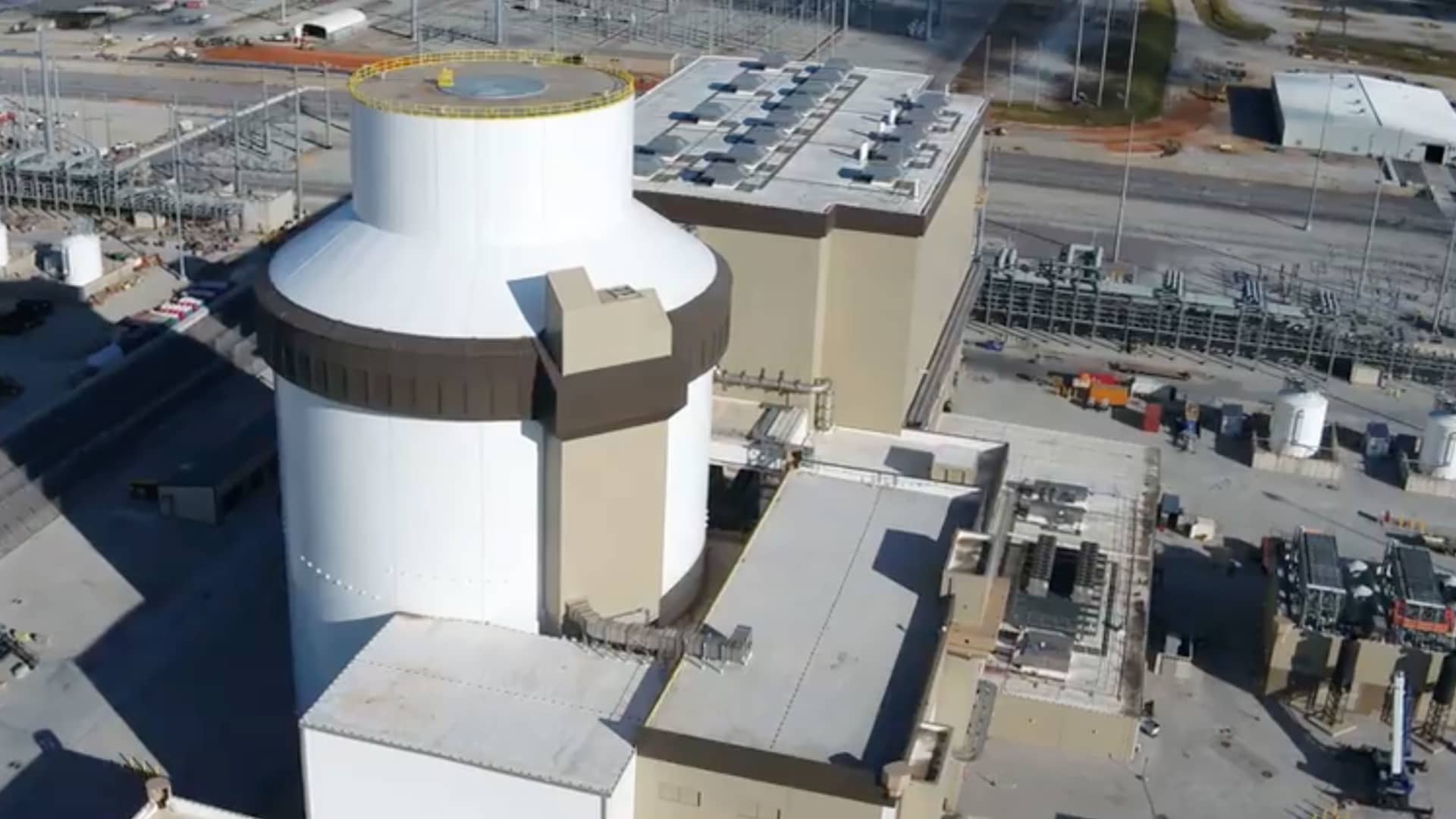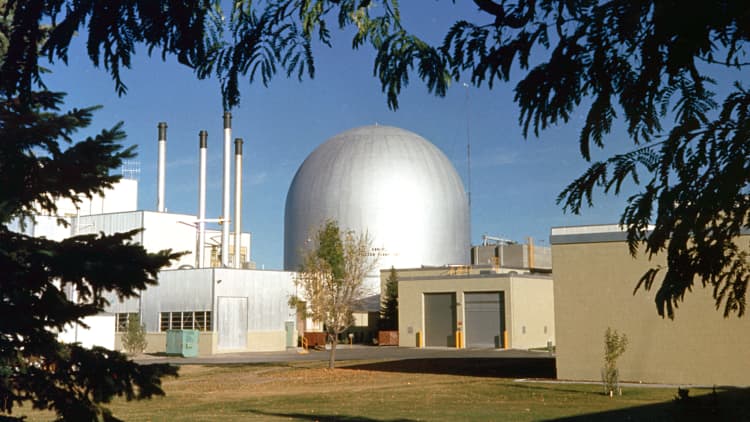

Vogtle nuclear reactor 3
Source: Georgia Power
Monday marked the first time a new nuclear reactor has begun delivering power to the electric grid in the United States in nearly seven years. Nuclear energy does not generate the greenhouse gas emissions that cause climate change.
The unit 3 reactor at Plant Vogtle near Waynesboro, Georgia, has started commercial operation, primary owner Georgia Power said on Monday. This follows preliminary tests in March.
The reactor, an Westinghouse AP1000, is generating approximately 1,110 megawatts of energy, which can power an estimated 500,000 homes and businesses, Georgia Power said.
The last time a nuclear reactor started delivering energy to the power grid was in October 2016, when the Tennessee Valley Authority began commercial operation of its Watts Bar Unit 2 near Spring City, Tenn., according to Scott Burnell, a spokesperson for the Nuclear Regulatory Commission. Prior to that, there hadn’t been a new nuclear reactor turned on since Watts Bar 1 in May 1996.
The unit 3 power reactor at Vogtle will deliver electricity to customers for the next 60 to 80 years, Georgia Power CEO Kim Greene said in a statement.
Reactors for Unit 3 and 4 sit at Georgia Power’s Plant Vogtle nuclear power plant on Jan. 20, 2023, in Waynesboro, Ga., with the cooling towers of older Units 1 and 2 billowing steam in the background.
John Bazemore | AP
The nuclear industry is celebrating the milestone.
“The commercial operation of Vogtle Unit 3 marks a significant achievement for the U.S. nuclear energy industry and a milestone in advancing global clean and reliable energy solutions,” Maria Korsnick, the CEO of the Nuclear Energy Institute, a nuclear industry advocacy group, said in a statement. “We are thrilled to witness the successful deployment of this Westinghouse AP1000 advanced reactor, which is helping to shape the energy landscape of the future.”
Over budget and late
Building one of these reactors is a massive project.
Construction on Vogtle 3 and 4 began in June 2009, took much longer than expected to complete, and was much more expensive than initially forecast, as detailed in a piece published Monday by nuclear energy scholars at Columbia University.
Initial cost estimates for both reactors were $14 billion, and they were expected to power up in 2016 and 2017. But the costs have ballooned to $30 billion so far, and unit 4 is still not turned on, nuclear energy experts Matt Bowen, Rama T. Ponangi, and Andrew Evans from Columbia said.
Some of the delays came because construction began before the design was completed, among other problems, the Columbia energy analysts say. New builds of the AP1000 will not face that struggle.
Regardless, the construction timeline and budget woes at Vogtle have been a drag for the nuclear industry, which is actively trying to reinvent itself after a decades-long slump.
Most of the nuclear energy in the United States came online in the 1970s and 1980s. Sentiment around nuclear energy nosedived in the United States after the nuclear reactor accident at Three Mile Island in 1979. “The nuclear construction industry went into the doldrums for two decades,” the industry trade group, the World Nuclear Association says.
But interest in nuclear energy has been increasing significantly in recent years as the sense of urgency in responding to climate change has pushed demand for clean energy. Nuclear energy contributed 47% of America’s carbon-free electricity in 2022, according to the DOE, and has contributed about 20% of the nation’s overall energy since the 1990s.
Unit 4 of the Vogtle Plant is expected to go into service during the late fourth quarter 2023 or the first quarter of 2024, Georgia Power said on Monday. Georgia Power owns 45.7% of the Vogtle Power Plant, the Oglethorpe Power Corporation owns 30%, the Municipal Electric Authority of Georgia owns 22.7%. and Dalton Utilities owns 1.6%.





